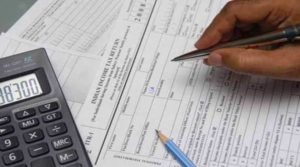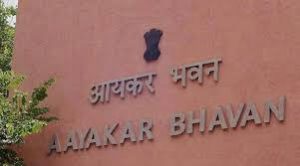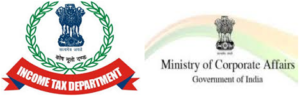 Tax payers who were supposed to file their income tax returns by September 30 now have some more time on their hands. The government has extended the deadline to file income tax returns for such tax payers until October 31.
Tax payers who were supposed to file their income tax returns by September 30 now have some more time on their hands. The government has extended the deadline to file income tax returns for such tax payers until October 31.
“The ‘due-date’ for filing Income Tax Returns and various reports of audit prescribed under the Income-tax Act,1961 has been extended from 30th September, 2017 to 31st October, 2017 for all taxpayers who were liable to file their Income Tax Returns by 30th September, 2017,” Ministry of Finance said.
This time tax payers will have to quote their 12-digit Aadhaar number or the 28-digit Aadhaar enrolment number while filing the income tax return.
You will have to keep the Form 16, which you got from their employer handy. If you don’t have it, get it asap. Download the Form 26AS from the Income Tax e-filing website. Form 26AS is a consolidated tax statement which states tax credit statement of all taxes received by the Income Tax Department against your PAN number. You will need it to tally with your Form 16.
Availability of the detail of bank accounts in which the refund is to be credited is a precondition for direct credit of refund in bank accounts. Refund generated on processing of return of income is currently credited directly to the bank accounts of the tax-payers. Non-residents, who are claiming refund but do not have bank accounts in India may furnish details of one foreign accounts in ITR for issuance of refund.
Bank accounts details
A tax payer is also required to disclose his/her bank account number along with the IFSC code. However, dormant accounts which have been in use for the past three years or more need not to be mentioned.
Mandatory disclosure
According to the Income Tax Department now, tax payers have to disclose information of cash deposited in their bank account aggregating to Rs 2 lakh from November 11 to 30 December, 2016.
Ensure that ITR is compliant with amount deposited in bank accounts during the period of demonetisation
Besides that, if any assessee has any unexplained income or investments, he has to report such unexplained income in the new ITR forms and such amount will be taxable at the tax rate of 60 percent plus surcharge and cess.
Tax deductions
- If you are claiming tax deductions under 80C, you should keep the following details handy:
- Investment details (eg: LIC, PPF, NSC)
- Home loan
- LTA
- Medical
Consequences of Late filing of Return
According to ClearTax, if there are any taxes which are unpaid, penal interest at 1 per cent per month or part thereof will be charged till the date of payment of taxes .Also Penalty of Rs 5,000 may be charged. The penalty is not levied in all cases and depends upon the circumstances of the case.
For returns of FY 2017-18 and onwards, penalty of Rs 5,000 will be charged for returns filed after due date but before 31st December. If returns are filed after 31st December, a penalty of Rs 10,000 shall apply. However, penalty will be Rs 1,000 for those with income upto Rs 5 lakh.
Who has to file?
Every person whose gross total income exceeds the taxable limit must file an Income Tax Return (ITR)
Who has to file?
Every person whose gross total income exceeds the taxable limit must file an Income Tax Return (ITR)
Who has to e-file?
- Individuals & HUF having total income exceeding Rs 5 lakh or claiming any refund in the return (excluding individuals of the age of 80 years or more who are furnishing return in Form no. ITR-1 or ITR-2).
- Individual or HUF, being a resident other than not ordinarily resident, having any foreign asset/income or claiming any foreign tax relief.
- Persons filing ITR in Form no. 3, 4, 5 or 7.
Source: Business Today






